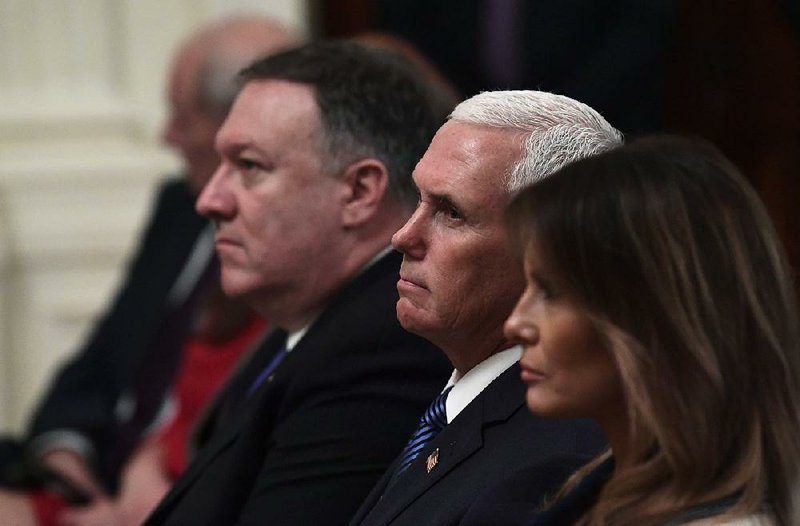WASHINGTON -- For a second-straight year the U.S. will slash the number of refugees it will accept, Secretary of State Mike Pompeo said, insisting after criticism from human-rights groups that the country is still committed to providing sanctuary to people fleeing danger zones.
Up to 30,000 refugees will be allowed into the country next year, down from a cap of 45,000 this year. It will be the lowest ceiling on admissions since the program began in 1980. The announcement Monday came despite calls from global humanitarian groups that this year's cap of 45,000 was too low.
The announcement drew harsh criticism from Democratic lawmakers.
"[President Donald Trump's] administration is not only abandoning America's long bipartisan history of humanitarian leadership, but also threatening national and regional security," Sen. Dianne Feinstein of California and Sen. Dick Durbin of Illinois said in a joint statement Tuesday.
Sen. Bob Menendez of New Jersey called the decision "truly repugnant" while Rep. Eliot Engel of New York said it will "surely go down as one of the ugliest chapters" in Trump's presidency.
The final number for the cap on refugees next year could change after consultations with Congress, Secretary of State spokesman Heather Nauert told reporters Tuesday. But in the past the number proposed by the administration is generally left unchanged by lawmakers.
"The White House will make the final determination on that number," Nauert said.
An analyst with the Cato Institute, a libertarian think tank in Washington, also criticized lowering the cap, saying the Trump administration is "shrinking the refugee program at exactly the moment when the number of people who need to flee violence has reached the highest level in decades."
Pompeo sought to head off potential criticism by noting that the U.S. would process more than 280,000 asylum claims in addition to more than 800,000 already inside the country who are awaiting a resolution of their claims.
"These expansive figures continue the United States' long-standing record as the most generous nation in the world when it comes to protection-based immigration and assistance," he said.
The 30,000 cap is the maximum number of refugees the U.S. will admit during the fiscal year that starts Oct. 1. The actual number could be lower. So far this year, the U.S. has only admitted 20,918 refugees for the fiscal year set to end in two weeks, according to State Department records.
President Barack Obama raised the ceiling to 110,000 in 2017, but the pace slowed after Trump took office and issued an executive order addressing refugees. In 2016, the last full year of the Obama administration, the U.S. welcomed nearly 85,000 refugees.
Pompeo said the lower ceiling reflected commitment to aiding families forced to flee their homes by war, persecution or natural disasters while "prioritizing the safety and well-being of the American people." He cited the case of an Iraqi refugee who was arrested in California for killing a policeman in his homeland while fighting for the Islamic State organization.
Amnesty International accused the Trump administration of "abandoning" refugees with the lower cap.
"This is the lowest goal in the history of the program, and compounded by this administration's history of creating road block after road block for refugees to arrive, this must be perceived as an all-out attack against our country's ability to resettle refugees both now and in the future," said Ryan Mace of Amnesty International.
Information for this article was contributed by Meghan Hoyer of The Associated Press.
A Section on 09/19/2018
